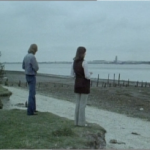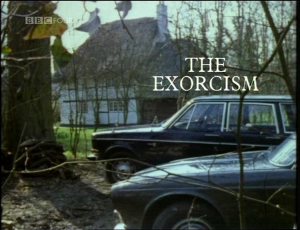by JOHN WHEATCROFT
Play for Today Writer: Peter Terson; Producer: David Rose; Director: Michael Simpson
“Contact with the lavatory on all floors”
Peter Terson’s best known plays, Zigger Zagger and The Apprentices, present a tough and unsentimental view of the world and of the occasional cruelties that people, more often than not working-class men, can heap on one another. His 1972 television comedy The Fishing Party is a gentler affair, although not without its acerbic moments.1
Three miners, Art (Brian Glover), Ern (Ray Mort) and Abe (Douglas Livingstone) head for Whitby where they have arranged a trip out to sea for some cod fishing. First they need accommodation and they find a truly grotty bed and breakfast. A snooty landlady, Audrey (Jane Freeman) and her hen-pecked husband Brian (Frank Moorey) agree after some shenanigans to give them a room for the night, at an exorbitant price. These early scenes run dangerously close to pure silliness in their depiction of unsophisticated working-class behaviour on the one hand and petty-bourgeois pretentiousness on the other. The Fishing Party is not a piece of work that has worn well. However, some gems of comic dialogue do a little to rescue the situation.
Play for Today: The Fishing Party, tx. BBC1, 1 June 1972. ↩


